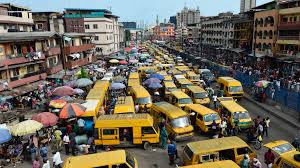
HOW URBANIZATION AND INDUSTRIAL GROWTH FUEL CRISIS IN DEVELOPING NATIONS
As urbanization and industrialization surge across developing countries, concerns over air quality reach critical levels, with detrimental consequences for public health and the environment. The rapid expansion of cities and industries, coupled with insufficient environmental regulations, has led to a significant deterioration in air quality, posing serious challenges for policymakers and citizens alike.
In regions experiencing rapid urbanization, such as parts of Asia and Africa, the proliferation of vehicles, construction activities, and energy consumption has become a major contributor to air pollution. The concentration of pollutants, including particulate matter (PM), nitrogen oxides (NOx), and volatile organic compounds (VOCs), exceeds safe levels in many urban centers, resulting in respiratory illnesses and other health complications among residents.
Also, the growth of industrial sectors in these countries has exacerbated air pollution levels. As industries expand to meet the demands of growing populations and global markets, emissions from manufacturing processes, power generation, and waste disposal continue to rise unchecked. The lack of stringent environmental regulations and enforcement mechanisms allows industries to prioritize production over environmental protection, leading to widespread contamination of the air and surrounding ecosystems.
The consequences of poor air quality extend beyond human health, impacting agricultural productivity, ecosystem stability, and climate patterns. High levels of air pollution can impair crop yields, diminish water quality, and disrupt natural habitats, further exacerbating food insecurity and ecological degradation in vulnerable regions.
In response to these challenges, governments and international organizations are increasingly recognizing the urgent need for comprehensive strategies to address air pollution in developing countries. Investments in clean energy technologies, sustainable urban planning, and pollution control measures are essential to mitigate the impacts of urbanization and industrial growth on air quality.
Additionally, public awareness campaigns, community engagement initiatives, and capacity-building programs play a crucial role in fostering a culture of environmental stewardship and empowering citizens to advocate for cleaner, healthier communities. By prioritizing sustainable development practices and embracing innovative solutions, policymakers can chart a path towards a cleaner, more resilient future for all.








